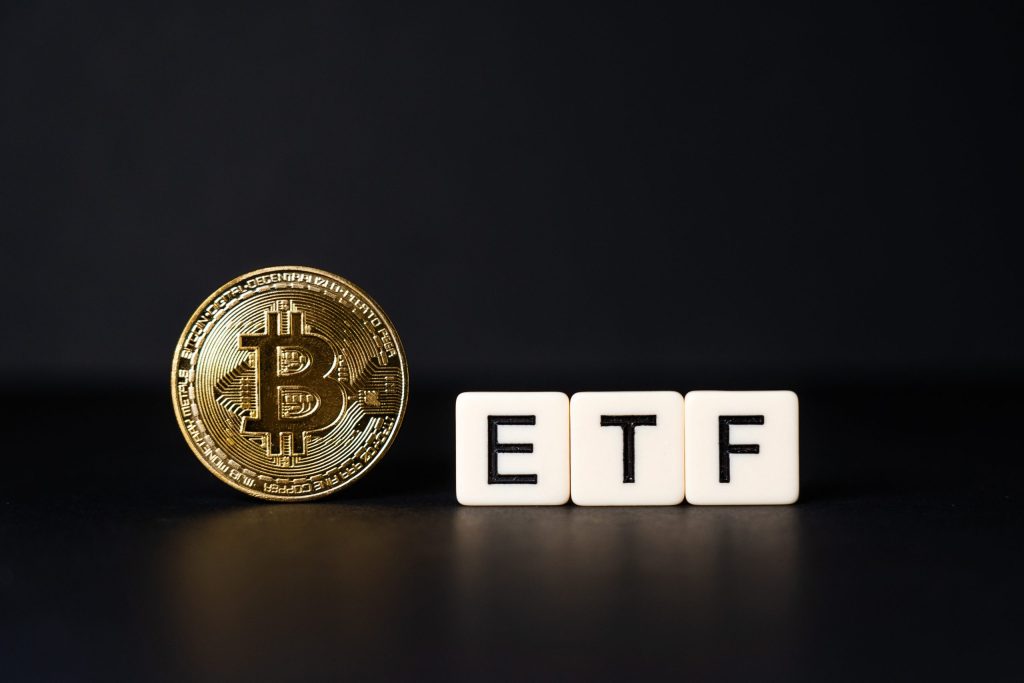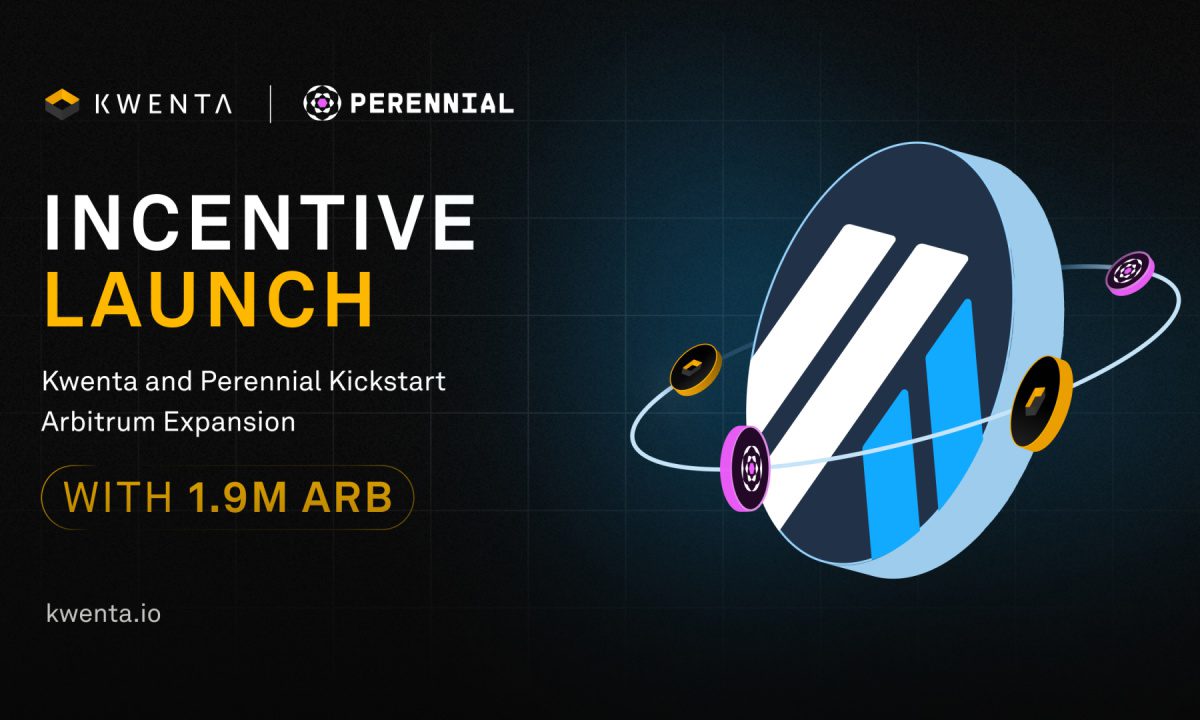Popular Bitcoin ETFs: Exploring the Pros and Cons
Since the filing of the first application for a U.S. Bitcoin exchange-traded fund (ETF) in 2013, the concept of a spot Bitcoin ETF has been a coveted goal within the cryptocurrency community. After years of anticipation, the crypto community’s holy grail has finally materialized. Today, let’s learn about popular Bitcoin ETFs with Coincu.

- What is a Bitcoin ETF?
- How do Bitcoin ETFs Work?
- What Are the Differences Between Bitcoin ETFs?
- List of Popular Bitcoin ETFs
- 1. ARK 21Shares Bitcoin ETF (ARKB)
- 2. Bitwise Bitcoin ETP Trust (BITB)
- 3. Fidelity Wise Origin Bitcoin Trust (FBTC)
- 4. BlackRock’s iShares Bitcoin Trust (IBIT)
- 5. Grayscale Bitcoin Trust (GBTC)
- 6. Franklin Bitcoin ETF (EZBC)
- 7. Hashdex Bitcoin ETF (DEFI)
- 8. Invesco Galaxy Bitcoin ETF (BTCO)
- 9. VanEck Bitcoin Trust (HODL)
- 10. WisdomTree Bitcoin Trust (BTCW)
- 11. Valkyrie Bitcoin Fund (BRRR)
- Pros and Cons of Popular Bitcoin ETFs
- Conclusion
What is a Bitcoin ETF?
The Bitcoin ETF is a game-changer for investors seeking exposure to the value of Bitcoin within the traditional financial market landscape. Unlike conventional cryptocurrency exchanges, these ETFs trade on established market exchanges, offering a convenient avenue for investors to engage with Bitcoin without the complexities associated with digital asset platforms.
In essence, a Bitcoin ETF functions as a financial instrument that mirrors the value of Bitcoin, providing investors with a regulated and accessible means to participate in the cryptocurrency market. This innovation eliminates the need for investors to navigate the often intricate processes of cryptocurrency exchanges, streamlining the investment experience and making it more user-friendly.

One of the key advantages of Bitcoin ETFs lies in their ability to offer leverage on the price of Bitcoin. This feature allows investors to amplify their exposure to the cryptocurrency’s price movements without the need to directly hold or manage the digital asset.
By trading on traditional market exchanges, these ETFs bring an element of familiarity and ease to the investment process, potentially attracting a broader range of market participants.
Read more: Bitcoin Spot ETF Explained: All Things You Need To Know!
How do Bitcoin ETFs Work?
Functioning similarly to traditional ETFs, a Bitcoin ETF would mirror the fluctuations in the price of Bitcoin. In essence, the value of one share of the exchange-traded fund would correlate directly with the market value of Bitcoin. If the price of Bitcoin rises, the ETF’s value follows suit, and conversely, a decrease in Bitcoin’s value would be reflected in the ETF.
What sets a Bitcoin ETF apart is its trading platform. Unlike traditional cryptocurrencies that trade on specialized cryptocurrency exchanges, a Bitcoin ETF would find its home on well-established market exchanges such as the New York Stock Exchange (NYSE) or the Toronto Stock Exchange (TSX). Read More
What Are the Differences Between Bitcoin ETFs?
Spot Bitcoin ETFs
Unlike their counterparts, the Bitcoin futures ETFs, spot Bitcoin ETFs distinguish themselves by directly investing in Bitcoins as the underlying asset rather than relying on derivatives contracts tied to Bitcoin prices.
Spot Bitcoin ETFs represent a regulated and accessible avenue for mainstream investors to participate in the digital currency market. This investment vehicle brings forth an opportunity for individuals who may have been hesitant or unable to engage with the cryptocurrency space directly. Notably, the appeal of spot Bitcoin ETFs lies in their ability to offer exposure to Bitcoin’s price movements without the need to navigate the complexities of holding and managing actual Bitcoins. Read More
Bitcoin Futures ETF
Another intriguing investment avenue is the realm of futures contracts, standardized agreements where two parties commit to exchanging a specific quantity of a standardized asset on a predetermined future date at an agreed-upon price. Bitcoin futures contracts, for instance, find their home on the Chicago Mercantile Exchange (CME), providing a regulated platform for cryptocurrency trading.
Combining these two financial innovations—ETFs and futures contracts—leads us to the concept of a Bitcoin futures ETF—an exchange-traded fund that acquires and holds bitcoin futures contracts while issuing shares of the fund to investors. What distinguishes this investment vehicle is the ability for investors to buy and sell these shares on mainstream exchanges, introducing a level of accessibility not typically associated with direct cryptocurrency trading. Read More
List of Popular Bitcoin ETFs
| Name | Ticker | Fees |
| ARK 21Shares Bitcoin ETF | ARKB | 0.21% |
| Bitwise Bitcoin ETP Trust | BITB | 0.2% |
| Fidelity Wise Origin Bitcoin Trust | FBTC | 0.25% |
| BlackRock’s iShares Bitcoin Trust | IBIT | 0.25% |
| Grayscale Bitcoin Trust | GBTC | 1.5% |
| Franklin Bitcoin ETF | EZBC | 0.29% |
| Hashdex Bitcoin ETF | DEFI | 0.9% |
| Invesco Galaxy Bitcoin ETF | BTCO | 0.39% |
| VanEck Bitcoin Trust | HODL | 0.25% |
| WisdomTree Bitcoin Trust | BTCW | 0.3% |
| Valkyrie Bitcoin Fund | BRRR | 0.25% |
1. ARK 21Shares Bitcoin ETF (ARKB)
Renowned for its actively managed, tech-focused funds, ARK Invest, founded by Cathie Wood, has now entered the Bitcoin ETF arena with ARKB. Boasting a reasonable expense ratio of 0.21%, ARKB is set to trade on the CBOE. What sets this ETF apart is ARK Invest’s decision to waive the fee for the first six months or until reaching $1 billion in assets. With Coinbase as the crypto custodian and notable authorized participants, ARKB emerges as a compelling choice in the market.
2. Bitwise Bitcoin ETP Trust (BITB)
Bitwise‘s perseverance has paid off with the launch of its Bitcoin ETF, BITB, featuring a low fee of 0.2%. This fee is waived for the first six months or until the fund hits $1 billion in assets. The fund, live on NYSE Arca, utilizes Coinbase as the crypto custodian and BNY Mellon as the administrator and trust custodian. Bitwise’s extensive experience in the crypto space, coupled with its unique advertising approach, positions BITB as a noteworthy contender in the market.
In addition to its Bitcoin ETF, Bitwise offers various crypto-related ETFs, including the Bitwise 10 Crypto Index Fund and the Bitwise Crypto Industry Innovators ETF.
3. Fidelity Wise Origin Bitcoin Trust (FBTC)
Fidelity, a giant in asset management, introduces FBTC with a moderate expense ratio of 0.25%. Notably, Fidelity has chosen to self-custody the Bitcoin underlying the ETF, a departure from industry norms. With a fee waiver until July 31, 2024, FBTC becomes an attractive option for investors seeking exposure to Bitcoin. Fidelity’s credibility and experience in the crypto space further enhance the appeal of FBTC.
4. BlackRock’s iShares Bitcoin Trust (IBIT)
BlackRock, the world’s largest asset manager, made waves with its application for a Bitcoin spot ETF, now realized as the iShares Bitcoin Trust (IBIT). With a standard fee of 0.25%, BlackRock is reducing it to 0.12% for the first $5 billion in assets or 12 months, whichever comes first. Utilizing Coinbase as the crypto custodian and backed by reputable authorized participants, IBIT stands out as one of the highest-profile Bitcoin ETFs.
5. Grayscale Bitcoin Trust (GBTC)
Grayscale Bitcoin Trust, having played a pivotal role in influencing SEC decisions, has transitioned into a full-fledged Bitcoin spot ETF on NYSE Arca. With an elevated fee of 1.5%, down from its previous 2%, GBTC aims to retain investors through its extensive track record and substantial BTC holdings. Coinbase, alongside other authorized participants, supports GBTC as it navigates the competitive landscape of Bitcoin ETFs.
6. Franklin Bitcoin ETF (EZBC)
Franklin Templeton, a global asset manager overseeing approximately $1.4 trillion in assets, entered the Bitcoin ETF race in September 2023 with the Franklin Bitcoin ETF (EZBC). Trading on the CBOE under the ticker EZBC, the ETF boasts a moderate fee of 0.29%. Notably, no fee waiver is currently in place for early investors. Franklin Templeton has chosen Coinbase as the custodian for the fund, with Jane Street and Virtu Americas listed as authorized participants.
7. Hashdex Bitcoin ETF (DEFI)
Brazil’s Hashdex brings a unique approach to the table with its Bitcoin ETF (DEFI), set to trade on the NYSE. Featuring an expense ratio of 0.9%, Hashdex differentiates itself by obtaining spot Bitcoin from the regulated CME (Chicago Mercantile Exchange). The fund, known for its connection to decentralized finance (DeFi), will list Jane Street, Macquarie, and Virtu Americas as authorized participants.
8. Invesco Galaxy Bitcoin ETF (BTCO)
The Invesco Galaxy Bitcoin ETF (BTCO) is a collaborative effort between traditional asset manager Invesco and digital asset management firm Galaxy Digital Holdings. Trading on the CBOE, the ETF charges 0.39%, with the unique feature of a fee waiver for the first six months or until reaching $5 billion in assets under management.
9. VanEck Bitcoin Trust (HODL)
VanEck, a seasoned player in the Bitcoin ETF arena, offers the VanEck Bitcoin Trust (HODL) on the Cboe exchange. With a 0.25% fee, the fund stands out by choosing Gemini as its custodian, deviating from the prevailing trend of selecting Coinbase. Additionally, VanEck demonstrates its commitment by donating 5% of fund profits to Bitcoin core developers. Jane Street, Virtu Americas, and ABN AMRO Clearing serve as authorized participants.
10. WisdomTree Bitcoin Trust (BTCW)
New York-based WisdomTree‘s Bitcoin ETF (BTCW) charges 0.3% and trades on the CBOE. With prior experience in launching a Bitcoin ETF on Switzerland’s SIX stock exchange in 2019, WisdomTree is waiving its fee for the first six months or until the fund reaches $1 billion in assets. Coinbase remains the crypto custodian, while State Street Bank and Trust handles administration and cash custody. Jane Street, Virtu Americas, and Macquarie Capital are enlisted as authorized participants.
11. Valkyrie Bitcoin Fund (BRRR)
Valkyrie, a relatively recent entrant, introduces the Valkyrie Bitcoin Fund (BRRR), trading on the Nasdaq. The fund offers a fee-free initial three months, followed by a 0.25% charge. The choice of Coinbase as the prime broker and Bitcoin custodian is complemented by U.S. Bank serving as the cash custodian. Valkyrie has amusingly referenced the popular “money printer goes brrr” meme in its ticker. Authorized participants include Jane Street and Cantor Fitzgerald & Co.
Pros and Cons of Popular Bitcoin ETFs
Pros of Popular Bitcoin ETFs
- Convenience for the Masses
- Portfolio Diversification Beyond Borders
- Boosting Liquidity in the Market
- Navigating Legal Hurdles
- Enhanced Security Measures
- Tax Optimization Strategies
- Catalyst for Future Crypto ETF Approvals
Bitcoin ETFs have emerged as a user-friendly gateway for individuals seeking to invest in Bitcoin without delving into the complexities of blockchain technology or navigating intricate processes on cryptocurrency exchanges. This development opens up the world of crypto trading to a broader audience.
Bitcoin ETFs offer more than just exposure to the flagship cryptocurrency. These funds can incorporate diverse assets, ranging from gold to shares in tech giants like Apple. This feature aligns with the inherent nature of ETFs, enabling investors to diversify their portfolios and mitigate risks associated with concentrating investments in a limited set of assets.
The advent of traded Bitcoin ETFs introduces a fresh wave of investors, potentially including institutional players indirectly entering the cryptocurrency domain. This influx enhances market liquidity, contributing to a more robust and dynamic trading environment.
Certain institutional investors, such as pension funds and asset management firms, may face regulatory constraints when directly investing in Bitcoin. Bitcoin ETFs provide a workaround, offering these entities easier access to Bitcoin without violating any regulatory stipulations.
For those unfamiliar with the intricacies of the crypto market, utilizing Bitcoin wallets or engaging in transactions on cryptocurrency exchanges can pose significant risks, including hacking, key loss, or misuse. Bitcoin ETFs provide a more secure avenue for investment, mitigating potential pitfalls associated with managing digital assets directly.
In jurisdictions with established crypto regulations, such as the United States, investing directly in Bitcoin may incur higher tax liabilities compared to trading ETFs akin to stocks on traditional stock markets. Bitcoin ETFs, therefore, present a tax-efficient alternative for investors looking to optimize their tax positions.
The success and acceptance of Bitcoin ETFs pave the way for potential approval of other cryptocurrency-related ETFs. This could attract a broader spectrum of investors to the crypto market, further expanding its reach and influence in the financial landscape.
Cons of Popular Bitcoin ETFs
One notable drawback of Bitcoin ETFs is the imposition of annual management fees. Unlike the potentially one-time fees, or even zero fees, associated with buying and selling on certain cryptocurrency exchanges, holding shares in a Bitcoin ETF can accumulate significant management fees over time. Investors need to carefully weigh these costs against the convenience and benefits offered by the ETF structure.
The crypto market operates 24/7, allowing investors to engage at any hour. However, Bitcoin ETFs operate within the confines of traditional stock market hours for trading. This temporal misalignment may restrict the flexibility and immediacy that investors accustomed to the continuous operation of the crypto market might experience.
While Bitcoin serves as a decentralized digital currency usable for payments in certain countries, Bitcoin ETFs lack this practical functionality. Investors holding shares in a Bitcoin ETF cannot utilize them directly for instant payments, resulting in a loss of the direct payment features associated with owning actual Bitcoin.
Bitcoin ETFs, by design, track the price movements of a managed group of underlying assets, introducing the possibility of price discrepancies. The ETF price may not always align with the net asset value of the fund, reflecting the dynamics of the assets being tracked. Investors should be cognizant of these disparities to make informed decisions about the actual value of their investment.
Conclusion
While the arrival of spot Bitcoin ETFs is met with enthusiasm, it also prompts questions about their impact on the broader cryptocurrency market and traditional financial systems.
The potential for increased institutional adoption, regulatory scrutiny, and the evolution of market dynamics are aspects that industry observers will closely monitor in the coming months. Hopefully Coincu‘s cover has helped you have a clearer view of the pros and cons of popular Bitcoin ETFs.
| DISCLAIMER: The information on this website is provided as general market commentary and does not constitute investment advice. We encourage you to do your own research before investing. |





















